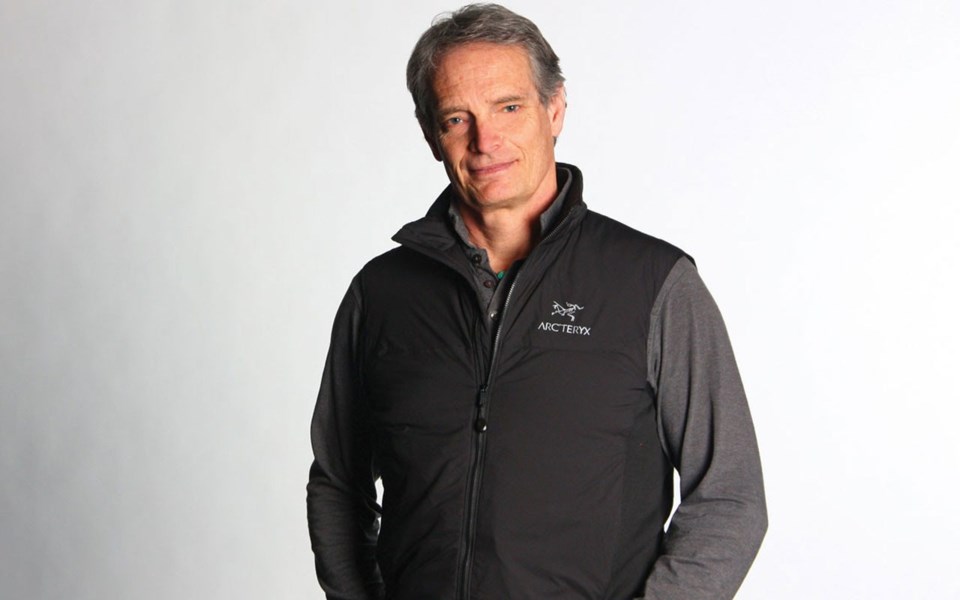A lot has changed in the world of outdoor recreation since renowned Canadian mountain writer Geoff Powter first started crafting essays for various publications more than three decades ago.
"The world has changed and so have I," he says.
That's why when Rocky Mountain Books first approached him about compiling his essays—steeped in tales of mountain adventure, particularly climbing—he gave pause before getting excited about the idea.
"When I first started looking at some of the things I'd done, I thought, 'Well, there are a lot of very different styles, different times, and different subjects even,'" he says. "But the more I looked at things, I got excited about (examining), how do you explain those differences? How do you make sense of the way things used to be compared to the way they are now?"
That ranged from logistical—some of the pieces were written before the metric system was widely used and even some mountain names had been changed out of respect to Indigenous groups—to cultural.
"I recognize I came from a very privileged time in terms of how few people I shared the mountains with," says Powter, who's lived in Canmore, Alta. for the last 32 years. "That's dramatically changed now. When I look through all the stories in that book, there's two where I'm on a mountain with somebody else. That just doesn't happen now."
To that end, as part of the resulting book, Inner Ranges: An Anthology of Mountain Thoughts and Mountain People, Powter revisited those essays and stories and wrote his current-day reflections on them.
"I elected to describe those challenges looking backwards," he adds.
There are, however, plenty of positive changes as well. "These days, having just as many women in the mountains as men is absolutely fabulous. Having really simplified access and, one of the biggest changes from my end was when I first started (climbing), you had to learn on your own and that sometimes had tragic consequences. Now, there are great ways to learn," he says.
Powter will be delving into some of these topics in Whistler on Saturday, May 18 during a free writing workshop called Finding the Words for Adventure.
"I think there are back stories to the stories in my book that are fairly instructive—how it's challenging to cover the outdoors sometimes," he says. "Not everyone understands the 'why.' (There will be) tips and some storytelling as well. Some of the stories in the book had some really interesting stories behind them; some funny stories, some challenges, some sad stories. I'm interested in sharing those."
Before that workshop on Friday, May 17, Powter will also be part of the Whistler Writers Festival's spring reading event, Travel, Place, Identity: Unpacking the Idea of Home. He'll be on a panel that also includes authors Frank Wolf, Pat Ardley and Becky Livingston. (Amy Fung was previously on the panel, but is now unable to attend.)
One thing his home in Canmore has in common with Whistler: both have become much busier in recent years.
"The other part of 'home' is history and deeply influenced by the sense of place around here, which includes the ways of approaching the mountains," he says. "The long-term history of respect for the mountains and what I'm calling in talks I've been giving the 'right' way of doing things, that's pretty rooted here. That's something that's been around for a long, long time. I hate to say it sometimes because it sounds kind of arrogant."
That's not to say his own mountain stories don't include some dark tales. In fact, he writes in his book, those are often easier to translate to the page.
"It's easier for people to grasp that falling and breaking your leg is pretty compelling and dramatic," he says. "It's hard to express what it's like to see a transformative sunrise from a mountain peak or how you've changed inside. That's a much taller order."
Tickets to the spring reading event, set to take place on May 17 at 7 p.m. at the Squamish Lil'wat Cultural Centre, are $22 available at whistlerwritersfest.com. The writing workshop is a free event taking place at the Whistler Public Library on May 18 from 3 to 4:30 p.m.




